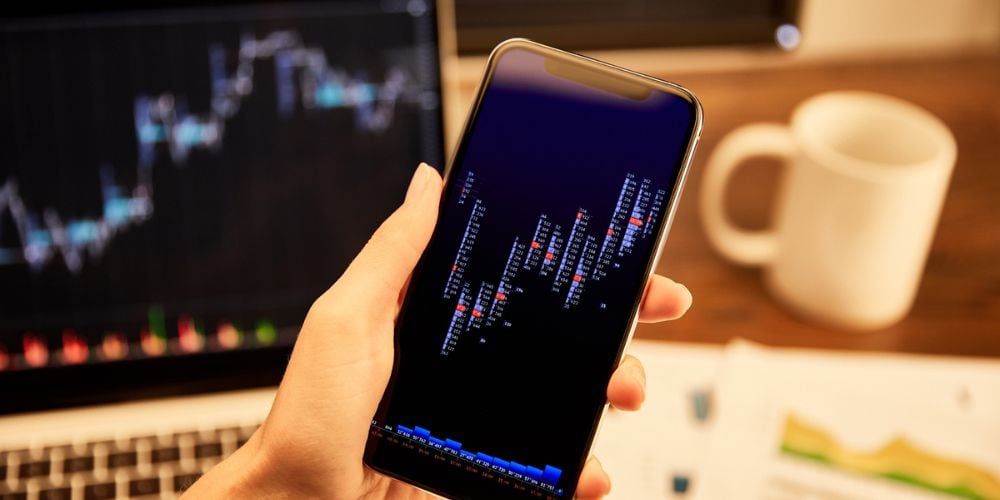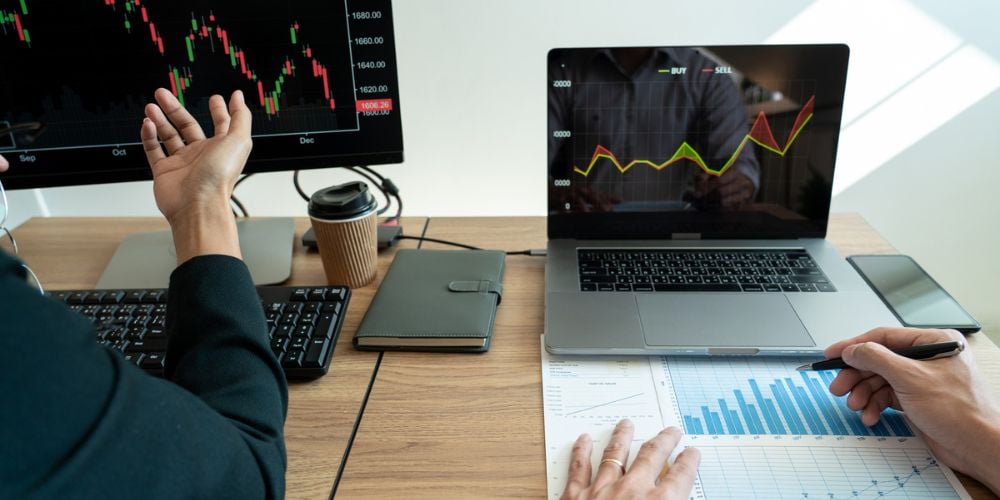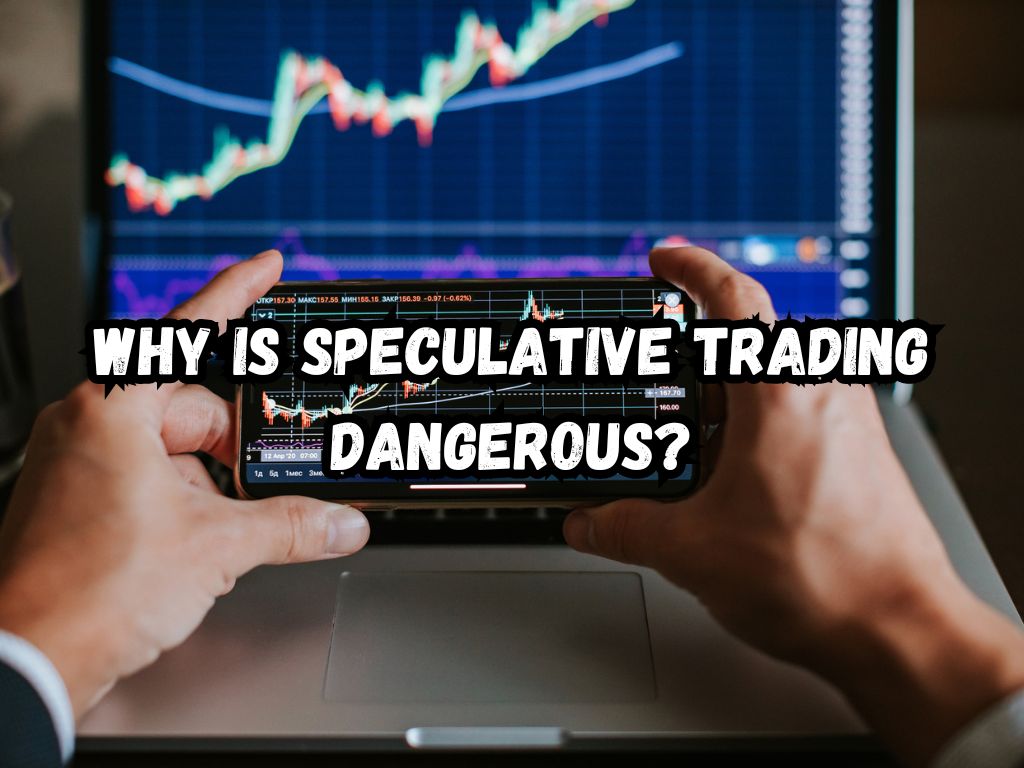Speculative trading attracts many with its allure of significant profits. The quick buy and sell tactics of this approach can seem exciting.
Yet, beneath the surface lies an array of risks.
This article unpacks why is speculative trading dangerous, offering a sobering look at the potential for financial turmoil.
Understanding Speculative Trading
Definition and Examples
Speculative trading involves betting on market prices in hopes of quick gains. Traders predict price movements in assets such as stocks or currencies.
Unlike investors, speculators focus on short-term profits. They might trade penny stocks known for their wild price swings, or they could engage in forex trading, where even minor changes can lead to big outcomes.
Mechanics of Speculative Trading
At its core, speculative trading relies on predictions and timing. Traders study the market to spot trends. They act swiftly to capitalize on these movements. Leverage is a tool often used to boost buying power.
But it comes with increased risk. This process requires a careful blend of analysis, intuition, and nerve.

Why is Speculative Trading Dangerous?
Financial Risks
Substantial Losses
The potential for losses is as significant as the hopes for gains. Markets can shift rapidly, defying even the most astute predictions.
A trader’s strategy might fail, leading to hefty financial consequences. The 2010 Flash Crash is one such example. It wiped out billions of dollars in minutes, showcasing the market’s unpredictable nature.
Leverage Risks
Leverage allows traders to control a large position with a smaller amount of capital. While this can amplify returns, it can also magnify losses. A small drop in market price can result in a total loss of the leveraged sum, leaving the trader in debt.
Psychological Impacts
Addiction to Trading
Speculative trading’s quick pace can be thrilling. For some, it becomes an addiction akin to gambling. The rush of a winning trade can lead to compulsive behavior. This addiction can ruin financial stability and strain personal relationships.
Stress and Mental Health
The constant pressure to perform can take a toll on a trader’s mental health. The high stakes and volatility bring stress.
Many traders face anxiety and, in the worst cases, depression. The mental load of speculative trading is a factor often underestimated.
Market Impacts
Volatility
Speculative trading can contribute to wild swings in market prices, as seen in speculation-driven bubbles that eventually burst.
These bubbles form when traders pour money into an asset, inflating its price beyond its intrinsic value. When reality sets in, the market corrects, leading to a crash.
Market Manipulation
Some use speculative trading to influence market prices unfairly. They might spread false information to create a buying frenzy. When other traders act on this misinformation, the manipulators sell at a profit.
This behavior is illegal, but it underscores another danger of this trading approach.
Mitivating the Risks
Research and Knowledge
Careful market research is vital. An understanding of market history helps in making informed decisions. Traders should study past trends and consider the broader economic context before entering a trade.
Risk Management Strategies
Using stop-loss orders can limit potential losses. Diversifying the trading portfolio spreads risk.
It’s also wise to be conservative with leverage. High leverage might tempt with the promise of grand returns, but it can lead to ruin.
Regulatory Considerations
Rules exist to prevent undue risk in the financial markets. Regulators like the Securities and Exchange Commission (SEC) set guidelines.
They monitor trading activity for signs of abuse. It’s important for traders to stay aware of these regulations to avoid legal trouble.

Frequently Asked Questions
What is speculative trading and how does it differ from investment trading?
Speculative trading focuses on short-term gains from market price movements. In contrast, investment trading seeks long-term growth through ownership of assets.
Why is leverage considered risky in speculative Humanities trading?
Leverage increases buying power, but it also amplifies losses. A minor drop in market value can erase the entire investment and leave the trader in debt.
Can speculative trading affect the economy? How?
Yes, speculative trading can cause market bubbles and crashes. These events can disrupt the broader economy, affecting jobs and growth.
What are some signs that a trader is becoming addicted to speculative trading?
Warning signs include obsessive market watching, neglecting other aspects of life for trading, and continuing to trade despite losses.
How can a beginner get involved in speculative trading safely?
Beginners should start with thorough education. They can practice with simulated trading accounts. Risk management strategies are also essential.
Are there any successful strategies for speculative trading, and how often do they work?
Some strategies have a track record of success. Yet, even the best plans can fail in the unpredictable world of speculative trading.
Conclusion
Speculative trading is not for the faint of heart. Behind the potential for large profits lies a deep pit of risks. From financial loss to mental stress, the dangers are real.
Traders must walk this tightrope with eyes wide open, balancing the lure of quick gains against the reality of significant risks.


 Tags:
Tags:










